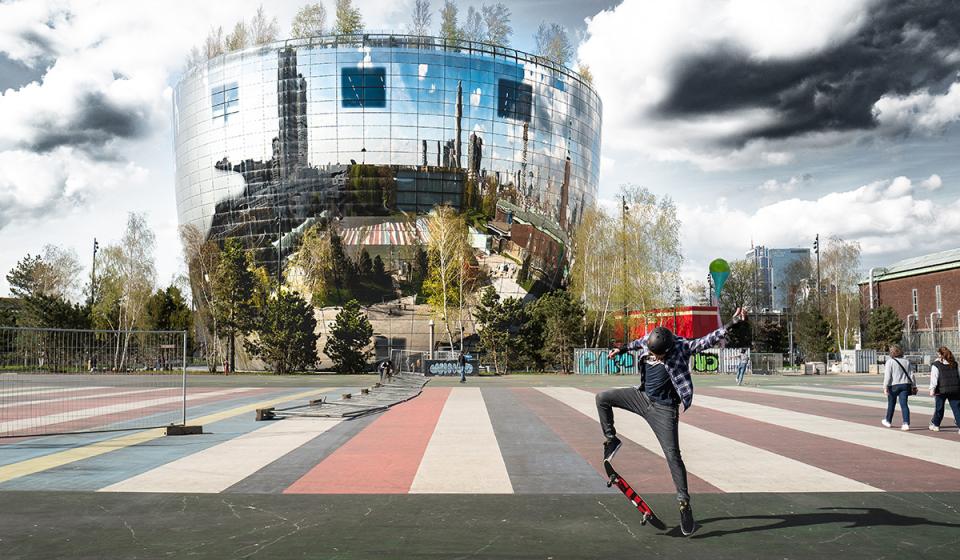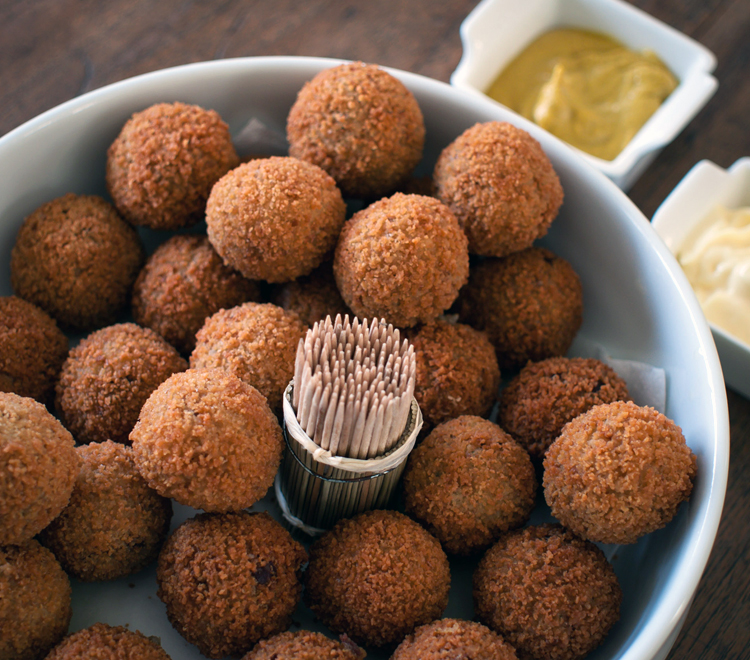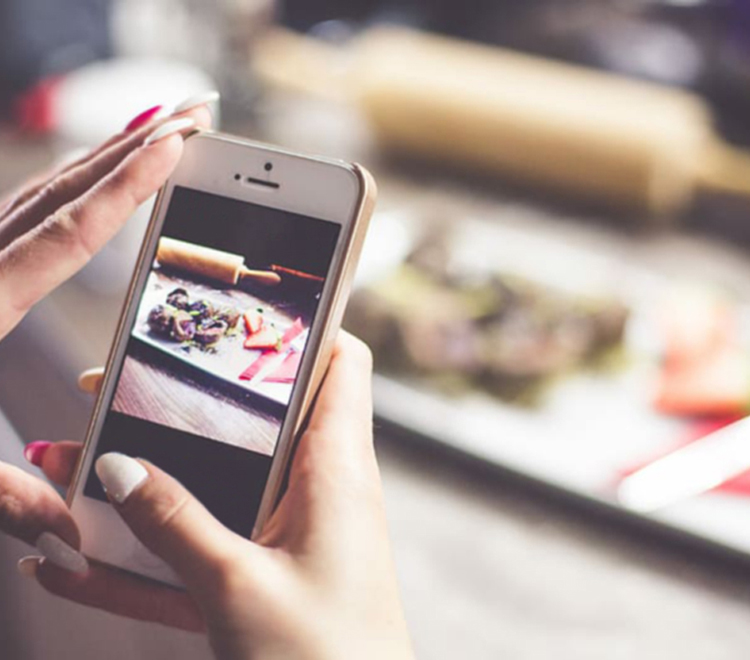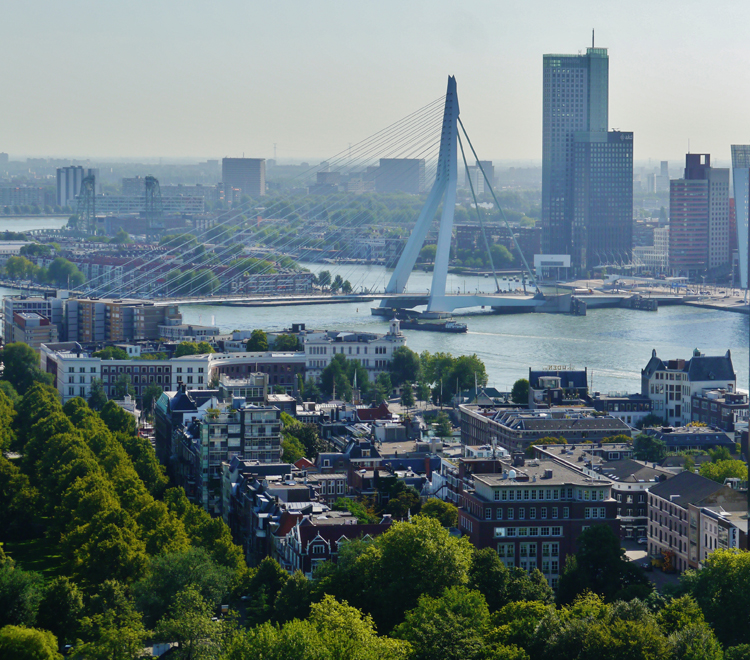The Rotterdam Beijerlandselaan Living Lab is a collaborative initiative aimed at exploring and implementing innovative solutions for promoting healthy diets in Rotterdam. By bringing together local stakeholders, including citizens, businesses, researchers, and policymakers, the aim is to co-create and test new ideas and interventions in real-world settings.
Beijerlandselaan is the largest shopping street in Rotterdam South area and is surrounded by 3 neighbourhoods, including the Hillesluis district. Hillesluis has about 12,000 inhabitants of which about 2,400 are under 16 and about 4,000 are under 251. The Beijerlandselaan-Groene Hilledijk (together Boulevard Zuid) has 240 shops and catering establishments, of which 51 are entrepreneurs selling food. There is a one-sided food offer with a lot of fast food. In the Hillesluis neighbourhood, 57% of adults are overweight compared to 50% nationally, so this concerns about 4,500 people. 21% of adults are severely obese compared to 15% nationally, so about 1,600 people. 59% of adults perceive their health as good/very good against 75% nationally2,3.
1 https://wijkprofiel.rotterdam.nl/nl/2022/rotterdam/feijenoord/hillesluis?toon=alles
2 https://gezondheidinkaart.nl/jive/report?id=tabellenboek_incl_wijk&inp_geo=wijk13_rap_059910
3 https://gezondheidinkaart.nl/dashboard/dashboard/voeding
Who we would like to support
The Living Lab focuses on engaging and empowering vulnerable groups, such as low-income households and ethnic minorities, who are at higher risk of experiencing diet-related health problems. We also target other segments of the population, including young adults and seniors, who can benefit from adopting healthier dietary habits. The residents of the Boulevard Zuid area live in background-related groups, where central key figures (so-called ‘neighbourhood fathers’) organize their community. Within the groups, people know each other well, although these communities rarely mix. There is also limited knowledge of the Dutch language, both written and orally. Therefore, a small-scale approach is essential.
Woonstad owns 70% of the property. The municipal parties (including ‘city marine’, neighbourhood networker, neighbourhood manager) know how to find each other well. Alliantie Hand in Hand is committed to a vital local economy and an attractive residential climate on Boulevard Zuid in the period from 2019-2029. For residents, visitors and entrepreneurs.
Property owners, entrepreneurs and the Municipality of Rotterdam are represented in this Alliance. In addition, the Boulevard Zuid is one of the focus areas of the Vital Core Areas programme. The Vital Core Areas programme works on lively and attractive residential and amenity areas for everyone. These areas offer a mix of functions with added value for visitors, local residents who frequently use the area and people who earn their living here.
Local Food Challenges
Having joined the national policy initiative ‘City Deal – Food on the Urban Agenda’ already back in 2015, Rotterdam can be considered as an early mover in the world-wide transition towards a more healthy and sustainable food system. Propelled by the ambitions put forward by the Milan Urban Food Policy Pact and one of the first cities to sign up to it in the same year, Rotterdam hosted the World Food Day in 2016.
In the past 15 years, the food supply in public spaces in Rotterdam and other Dutch cities has significantly increased, leading to a sharp rise in the consumption of unhealthy fast food. The fast food share in Rotterdam alone has grown by 46% since 2004, with the most significant increase occurring in low socio-economic score neighborhoods where the number of fast food providers has risen by 67%. In comparison, affluent neighborhoods only saw a growth of 4%. Unfortunately, research conducted by Wageningen University reveals that 80% of the food products in supermarkets do not adhere to the national dietary guideline known as the "Schijf van 5" (Disk of Five).
Easy access to an abundant food supply makes it difficult for individuals to adopt and maintain a healthy lifestyle. Moreover, much of our food choices are unconscious and are based on environmental stimuli and habits. An average person makes about 200 food choices every day, with the majority being unconscious. Individuals who are struggling with money and the stress that comes with it are particularly susceptible to the temptation of the food environment. Long-term poverty and stress negatively impact cognitive abilities and contribute to unhealthy food choices.
Rotterdam faces several local food challenges that affect the health and well-being of its citizens. These include limited access to healthy and affordable food options, particularly in low-income neighborhoods such as Rotterdam South, where Boulevard Zuid is located. The city also has a high prevalence of diet-related diseases such as obesity, diabetes, and cardiovascular disease, partly due to a lack of awareness and knowledge about healthy diets and nutrition.
Living Lab Activities
The municipality has decided to first approach the local population and shop owners as a testing ground. In order to do so, representatives from the municipalities have linked up with local consortia and stakeholders such as “Alliantie Hand in Hand” , the welfare organization and key persons like the local diet expert, and a local shop owner. These contacts turn out to be key when getting into touch with the target group and when planning interventions. To reach out to young adults, the project organisation is reaching out to influencers from the area: “Sloe-gie”, “Bolle van de bakkerij” and “Touzani”.
In cooperation with these groups, a series of local studies and brainstorming events have been launched to explore the social setting and mind set of the inhabitants. Two events have already taken place, where shop owners have had a dialogue about the healthy options that are currently available in their establishments and exchange viewpoints and prioritize the goals, focus and first activities. During a third meeting, a public Iftar meal was held to mark the end of the Ramadan period.
Rotterdam is a vibrant city in the Netherlands known for its entrepreneurial spirit and its innovative architecture after the devastating bombing of the old center during WWII. Home to the largest port of Europe, it has a lively international export of food and goods. Rotterdam is home to a diverse population of over 600,000 people from over 170 nationalities, and 50 percent of its inhabitants have a migration background4. Because of these different cultural backgrounds and wide access to international food products, the city has a rich culinary scene, with a wide range of local and international cuisines to explore.
4 https://wijkprofiel.rotterdam.nl/nl/2022/rotterdam/feijenoord/hillesluis?toon=alles
5 Vleut, J.G. 2022. Rapport Voedselaanbod Beijerlandselaan/Groene Hilledijk. Het Opiniehuis. Markt & Opinieonderzoek. 20p.



